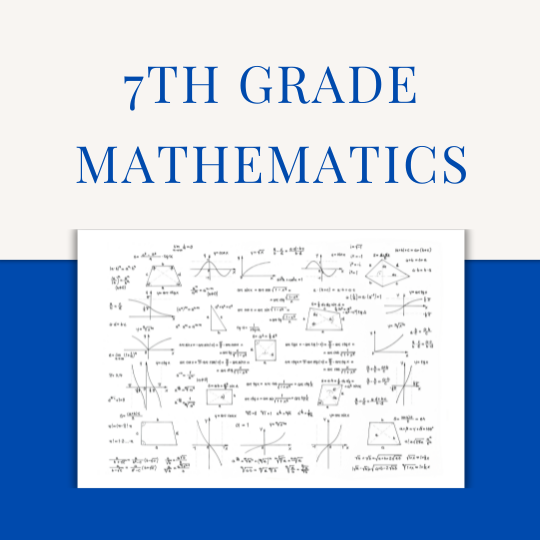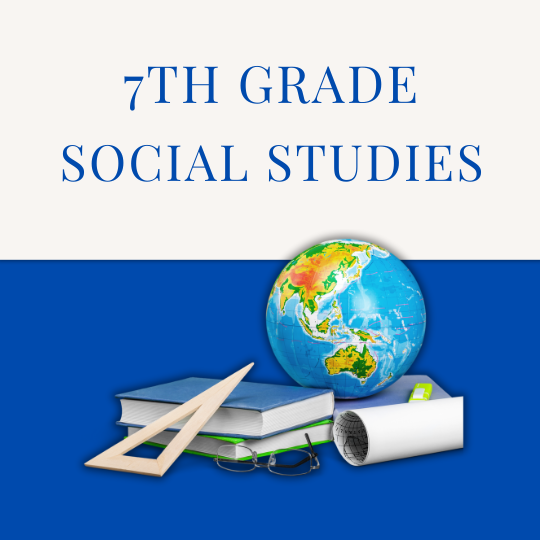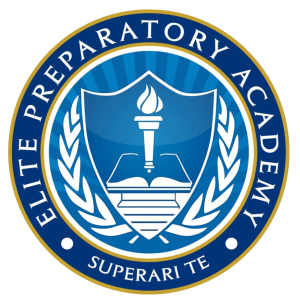
Course Description: 7th Grade English Language Arts
In this dynamic 7th-grade English Language Arts course, students will develop critical reading, writing, speaking, and analytical skills through engaging with diverse texts, multimedia sources, and real-world applications. Aligned with Common Core State Standards, the curriculum emphasizes deep textual analysis, effective communication, and creative expression while fostering independent thinking and collaboration.
Course Highlights:
Reading & Literary Analysis
- Literature: Students will analyze short stories, poems, and dramas (e.g., "The Treasure of Lemon Brown," Langston Hughes’ "Mother to Son") to identify themes, figurative language, and narrative structure.
- Informational Texts: Learners will evaluate articles, speeches, and multimedia sources (e.g., Newsela, TED-Ed) to distinguish fact from opinion, trace arguments, and compare authors’ perspectives.
- Media Literacy: Comparing written texts to film, audio, and digital versions (e.g., Pixar shorts, "The Lottery" adaptations) to examine how meaning changes across formats.
Writing & Research
- Argumentative Writing: Crafting persuasive essays and debates on relevant topics (e.g., school uniforms, ethical dilemmas) using evidence-based reasoning.
- Narrative & Reflective Writing: Creating personal narratives and imaginative stories inspired by mentor texts like "Seventh Grade" by Gary Soto and "Brown Girl Dreaming."
- Research Skills: Conducting short research projects, synthesizing multiple sources, and presenting findings in clear, well-organized reports.
Speaking & Listening
- Collaborative Discussions: Engaging in structured debates, Socratic seminars, and peer feedback sessions.
- Presentation Skills: Delivering speeches, multimedia presentations, and storytelling performances modeled after TED Talks and The Moth podcast.
Language & Vocabulary
- Grammar & Conventions: Strengthening writing through proper grammar, punctuation, and sentence structure.
- Figurative Language & Word Study: Analyzing metaphors, tone, and connotation in poetry and prose.
- Academic Vocabulary: Expanding domain-specific language through context clues, roots, and affixes.
Key Learning Experiences:
- Text Pairings: Comparing themes across texts (e.g., "Thank You, Ma’am" and "Eleven") to explore universal ideas like resilience and identity.
- Creative Projects: Adapting stories into scripts, designing visual presentations, and producing podcasts.
- Real-World Connections: Evaluating news media bias, researching current events, and reflecting on ethical dilemmas.
Assessments & Outcomes:
- Performance Tasks: Debates, narrative writing portfolios, and literary analysis essays.
- Collaborative Projects: Group research presentations and dramatic readings.
- Self-Reflection: Journals and exit tickets to track growth in reading and writing.
Materials: Novels, short stories, poetry, news articles, podcasts (e.g., Brains On!), videos (e.g., TED-Ed), and digital tools for writing and research.
Prerequisites: Foundational 6th-grade ELA skills in reading comprehension, paragraph writing, and group discussion.
By the end of this course, students will emerge as confident readers, critical thinkers, and articulate communicators, prepared for the challenges of high school ELA and beyond. Through interactive and reflective learning, they will discover the power of language to inform, persuade, and inspire.

Course Description: 7th Grade Mathematics
In this engaging and hands-on 7th-grade mathematics course, students will develop essential mathematical skills through real-world applications, problem-solving, and creative projects. The curriculum is aligned with key mathematical domains, including Ratios and Proportional Relationships, The Number System, Expressions and Equations, Geometry, and Statistics and Probability, while also emphasizing Mathematical Practice Standards to foster critical thinking and reasoning.
Course Highlights:
- Ratios & Proportional Relationships: Students will explore unit rates, scaling recipes, calculating discounts, and using proportions in scale drawings and artwork.
- The Number System: Through budgeting, board game design, and real-world rational number applications, students will master operations with fractions, decimals, and integers.
- Expressions & Equations: Learners will solve multi-step problems, create and solve their own equations, and apply algebra in budgeting and real-life scenarios.
- Geometry: Hands-on projects include designing 3D models, creating scale drawings, and analyzing geometric shapes to understand area, volume, and spatial reasoning.
- Statistics & Probability: Students will collect and analyze data through surveys, sports statistics, and probability experiments, presenting findings in reports and visual displays.
Key Learning Experiences:
- Project-Based Learning: Students will engage in interactive projects such as scaling recipes, designing board games, conducting surveys, and creating geometric artwork.
- Real-World Applications: Lessons connect math to everyday life, including budgeting, shopping discounts, sports statistics, and architectural design.
- Collaborative & Creative Assessments: Assessments include presentations, posters, model-building, and problem-solving booklets to showcase understanding in creative ways.
By the end of this course, students will have strengthened their mathematical fluency, problem-solving abilities, and confidence in applying math to real-world situations. Through exploration, creativity, and hands-on activities, they will see mathematics as a powerful and practical tool for life.
Prerequisites: Successful completion of 6th-grade math or equivalent foundational skills.
Materials: Common classroom supplies (graph paper, rulers, calculators) and project-specific materials (poster boards, measuring tapes, art supplies) will be used throughout the course.
This course prepares students for higher-level math while making learning fun, relevant, and meaningful!

Course Purpose
The purpose of this 7th Grade Science course is to foster scientific literacy and critical thinking through hands-on, inquiry-based, and project-driven learning experiences. Students engage in real-world scientific practices, develop models, conduct experiments, and apply evidence-based reasoning to explore the core concepts of life, physical, Earth, and space sciences. This course empowers students to understand natural phenomena, evaluate human impacts on the environment, and propose thoughtful solutions, all while cultivating collaboration, communication, and analytical skills.
Course Description
This 7th Grade Science course at Sawyer Scholastics & Academy is a robust, standards-aligned curriculum designed around the Next Generation Science Standards (NGSS) for middle school. The course spans 18 thematic units, each consisting of 10 interactive and scaffolded lessons that progressively build students' scientific understanding through observation, experimentation, data analysis, model creation, and reflective reporting.
Students investigate major topics such as:
- Photosynthesis and Energy Transfer in Plants
- Digestive Processes and Energy for Growth
- Genetics and Environmental Influences
- Cell Division (Mitosis)
- Ecosystem Energy Flow and Population Dynamics
- Geological and Fossil Evidence of Earth's History
- Newton's Laws and Forces in Motion
- Material and Energy Cycles on Earth
- Climate Science and Human Impacts
- Electric and Magnetic Forces
- Atomic Structure and Molecular Formation
Each unit aligns with specific NGSS Performance Expectations (PEs) and is structured to incorporate:
- Disciplinary Core Ideas (DCIs) across Physical Science (PS), Life Science (LS), Earth and Space Science (ESS), and Engineering (ETS)
- Science and Engineering Practices (SEPs) such as developing models, conducting investigations, and analyzing data
- Crosscutting Concepts (CCCs) including systems and system models, cause and effect, energy and matter, and stability and change
The curriculum is rooted in project-based learning. Every unit features a central question or design challenge, inquiry prompts, multimedia resources, scaffolded experimentation, and culminates in a final report or presentation. Student progress is evaluated using clear rubrics focused on conceptual understanding, analytical thinking, communication, and scientific modeling.
Standards Alignment
The course comprehensively aligns with the following NGSS Performance Expectations, among others:
- MS-LS1-6, MS-LS1-7: Energy in organisms and systems
- MS-LS2-1, MS-LS2-3: Ecosystem dynamics and energy flow
- MS-PS2-1, MS-PS3-3, MS-PS2-2: Forces, motion, and energy transfer
- MS-ESS2-1, MS-ESS2-2, MS-ESS3-3: Earth’s systems and human impact
- MS-ESS1-1, MS-ESS1-4: Seasons, fossil record, and Earth’s history
- MS-PS1-1, MS-LS3-1: Atomic structure and genetics
- MS-ETS1-1 to MS-ETS1-4 (implicitly through design challenges and engineering projects)
Students are not only assessed on knowledge acquisition but also on their ability to model, argue from evidence, interpret data, and communicate findings—reflecting the three-dimensional learning model of NGSS.

Course Purpose
The 7th Grade Social Studies course is designed to cultivate students’ understanding of the interconnected nature of historical events, cultural development, economic systems, civic responsibilities, and global relationships. Through inquiry-based learning, critical thinking, and interactive projects, students will develop the skills to analyze the past, evaluate the present, and anticipate future societal trends. The course purposefully aligns with the National Curriculum Standards for Social Studies (NSSS), ensuring students gain proficiency across key thematic strands, from civics and history to economics and global connections. Each unit includes measurable learning objectives and performance-based assessments, allowing students to demonstrate mastery through research, analysis, and applied problem-solving.
Course Description
This year-long 7th Grade Social Studies program provides students with an engaging, interdisciplinary exploration of how societies evolve, interact, and respond to challenges. Organized into 18 thematic units, the curriculum addresses the ten themes of the NSSS, including Culture; Time, Continuity, and Change; People, Places, and Environments; Individual Development and Identity; Individuals, Groups, and Institutions; Power, Authority, and Governance; Production, Distribution, and Consumption; Science, Technology, and Society; Global Connections; and Civic Ideals and Practices.
Students will investigate topics such as comparative government systems, major historical movements, cultural analysis, economic principles, technological innovations, civic engagement, and environmental impacts on migration. Each unit is built on clear, measurable objectives—for example, mapping government types to analyze their societal effects, creating timelines to trace historical influence, or simulating trade to understand global interdependence. Assessments are tied to specific performance indicators, including research depth, analytical clarity, visual representation, and presentation skills.
Through projects, debates, mapping activities, simulations, and reflective writing, learners will demonstrate their ability to:
- Apply geographic, historical, and economic concepts to real-world scenarios.
- Analyze diverse perspectives and cultural influences.
- Engage in informed civic discourse and decision-making.
- Synthesize research into cohesive arguments and solutions.
By the end of the course, students will have not only met but applied the NSSS-aligned standards in ways that prepare them for active, informed citizenship in a complex, interconnected world.
